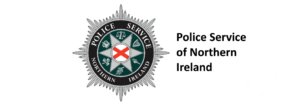CREST are part of the Derby & Derbyshire Road Safety Partnership which exists to reduce the number of people killed and hurt on the roads. The partnership was set up in April 2007 in response to a new approach to road safety funding by the government. The new approach saw the end of local safety camera partnerships, which were funded through speeding fines, and the launch of a new road safety grant scheme for councils. Councils wishing to bid for grant funding were encouraged to form partnerships with other public sector organisations in their area with an interest in reducing road deaths and injuries.
The new approach saw the end of local safety camera partnerships, which were funded through speeding fines, and the launch of a new road safety grant scheme for councils. Councils wishing to bid for grant funding were encouraged to form partnerships with other public sector organisations in their area with an interest in reducing road deaths and injuries.
The Challenge
Improving road safety with ever deepening budget cuts is one of the biggest challenges facing CREST. A key road safety strategy for CREST is to utilise speed camera technology to enforce the speed limits on Derbyshire’s roads. With this in mind the importance of maintaining a robust deterrent to speeding motorists has never been clearer. The physical presence of the cameras themselves ensures that most people will stick to the speed limit but there is still a significant number of drivers who break the law. The outcome for these drivers is determined by how much they are exceeding the speed limit by and they will either be offered driver education, given 3 penalty points on their license with £100 fine or an appearance in court.
Processing a traffic offence from ‘camera capture’ to one of these outcomes can be complex. Firstly, a stringent set of rules have to be adhered to in the lifecycle of a traffic offence e.g. the cameras have to be type approved and calibrated, Notices of Intended Prosecution (NIPS) have to be issued within 14 days and speeding bands need to be set for each outcome. Secondly, if the offending driver has to go court an evidence trail needs to be produced to support the case for the prosecution. And finally, it is important to deter errant drivers with camera enforcement but it is equally important that all drivers are treated fairly; the ‘Justice Gap’ where a significant number of offending motorists just simply get away with it, is clearly unfair.
To see this Case Study in full please visit Derbyshire Police CREST Case Study






